Dear World . . . Sincerely, Palestine
The Heathlander recently posted links to annual reports by various human rights organizations to the United Nations Human Rights Council’s Universal Periodic Review concerning the situation in the Occupied Palestinian Territories (OPT). The article which includes the links represents the views of Richard Falk, a UN human rights investigator recently relieved of his position because of his “hostile views” toward Israel. The findings of a few of these reports are summarized below.
The State of Israel was founded in 1948, carved chiefly out of what had been colonial possessions of the United Kingdom. While many support the existence of a Jewish homeland, particularly in the wake of the events of the Second World War, fewer agree that these particular lands should have been ceded to the control of relatively new Zionist immigrants rather than to the Palestinian ethnic groups which had resided there for centuries. The Zionist settlers believed that they enjoyed a religious “right of return” to the area according to scripture, a controversial notion which, even where accepted, is not generally held to entail such brutal disregard for the sovereignty and basic human dignity of Palestinians.
Since 1967, Israel has occupied lands which were ceded to the Palestinians under a U.N. agreement, pursuing what many feel are policies of expansion, oppression, and apartheid against Palestinians. Additionally, Israel, which possesses without acknowledgment the sole known nuclear arsenal in the region, continues to threaten other surrounding powers—particularly Iran—which have criticized its occupation of Palestinian lands and cruel treatment of Palestinians. At one point or another, it has occupied lands belonging to all of its Arab neighbors; yet the Israeli government continually represents itself as an innocent victim of anti-Semitic violence, refusing to acknowledge that such violence, while unfortunate and deplorable, represents desperate guerrilla-type self-defense on the part of the disenfranchised Palestinians.
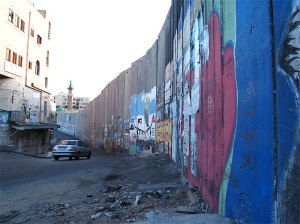 In 2006, Hamas, frequently described as an “Islamic militant” or “terrorist” organization due to its sponsorship of guerrilla activities against the Israeli military and some civilians, won free elections in Gaza. Since then Israel has aggressively boycotted the government in Gaza using blockades, military incursions, and other harmful and violent means which amount to collective punishment of Gaza’s 1.5 million citizens. The West Bank, in contrast, is now presided over by a U.S.-backed government.
In 2006, Hamas, frequently described as an “Islamic militant” or “terrorist” organization due to its sponsorship of guerrilla activities against the Israeli military and some civilians, won free elections in Gaza. Since then Israel has aggressively boycotted the government in Gaza using blockades, military incursions, and other harmful and violent means which amount to collective punishment of Gaza’s 1.5 million citizens. The West Bank, in contrast, is now presided over by a U.S.-backed government.
The United Nations has, on too many occasions to count, reprimanded Israel and called for an end to these atrocities. Such proceedings are routinely boycotted by Israel, the United States, and sometimes a few other member states, while being overwhelmingly supported by the majority of the international community. The United States provides billions of dollars in financial and military aid to Israel annually, and is characteristically quick to defend Israeli hegemony and expansionism in the region in the name of self-defense.
The following are direct or paraphrased excerpts of just a few of the many 2008 reports to the UNHRC concerning conditions in Palestine. For the full set of reports, visit this page. These documents represent merely the latest additions to a huge book detailing many of the atrocities visited against the Palestinian people according to a pattern of U.S.-sanctioned abuse which stretches back for decades.
U.S. refuses to sign U.N. declaration in favor of decriminalizing homosexuality
Standing alone among the major Western powers, the delegation from the United States refused to sign on Thursday a non-binding United Nations resolution calling for the decriminalization of homosexuality.
The measure, co-sponsored by France and the Netherlands, was signed by 66 countries. In at least 80 nations, homosexuality is a criminal offense; in some countries, such as Saudi Arabia and Iran, it is punishable by execution.
BBC News reports:
The countries signed a declaration sponsored by France and the Netherlands demanding an end to legal punishment based on sexual orientation.
Sixty other countries of the UN’s 192 member states, including a number of Arab and African states, rejected the non-binding declaration.
They said laws on homosexuality should be left to individual countries.
Gay men, lesbians and transsexuals worldwide face daily violations of their human rights.
France and the Netherlands drafted the declaration in part to commemorate the 60th anniversary of the Universal Declaration of Human Rights. Signatories included all 27 members of the European Union, Japan, Mexico, and Australia, as well as three dozen other member states.
France’s human rights minister, Rama Yade, called the lack of U.S. support “disappointing,” especially for a country which so vocally prides itself on its defense of human rights abroad.
Why did the United States refuse to sign? An MSNBC article explains:
According to some of the declaration’s backers, U.S. officials expressed concern in private talks that some parts of the declaration might be problematic in committing the federal government on matters that fall under state jurisdiction. In numerous states, landlords and private employers are allowed to discriminate on the basis of sexual orientation; on the federal level, gays are not allowed to serve openly in the military.
Carolyn Vadino, a spokeswoman for the U.S. mission to the U.N., stressed that the United States — despite its unwillingness to sign — condemned any human rights violations related to sexual orientation.
Gay rights activists nonetheless were angered by the U.S. position.
“It’s an appalling stance — to not join with other countries that are standing up and calling for decriminalization of homosexuality,” said Paula Ettelbrick, executive director of the International Gay and Lesbian Human Rights Commission.
She expressed hope that the U.S. position might change after President-elect Barack Obama takes office in January.
The federal government of the United States has never concretely expressed that Equal Protection—the Fourteenth Amendment provision which is supposed to force states to guarantee the extension of rights to all citizens—applies to matters of sexual orientation. It has left the legislation of sexuality open to the various states, such as California, where voters last month passed Proposition 8, a measure defining marriage as solely between a man and a woman. Consequently, many gays in the U.S. feel merely tolerated and frequently openly discriminated against by U.S. law. They say the federal government should take a stand against anti-gay laws and use Equal Protection to ensure compliance at the state level.
Syria represented a group of 60 countries which refused to sign the declaration. The Vatican City also abstained, stating that, while it supports an end to anti-gay laws and persecution, its view is that such a declaration “gives rise to uncertainty in the laws and challenges existing human norms.”
And that, French and Dutch delegates might argue, is exactly what the declaration was intended to do.
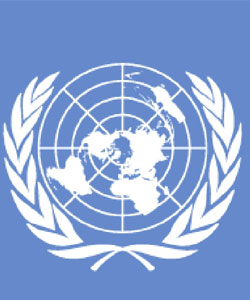
Gore, UN-IPCC Win Nobel Peace Prize
Former U.S. Vice President and 2000 Presidential Candidate Albert Gore, Jr. has been awarded the 2007 Nobel Peace Prize for his work to bring the attention of policymakers and the public to the problems posed by anthropogenic (manmade) climate change. He shares this prize with the United Nations Intergovernmental Panel on Climate Change (UN-IPCC), a consortium of hundreds of climate scientists and other natural scientists from around the world which works to review the literature on climate change and to make sound policy recommendations to the UN and to governments.
At a press conference following the Nobel awards ceremony, Mr. Gore told reporters that climate change is the “most dangerous challenge we’ve ever faced,” according to The Guardian.
“It truly is a planetary emergency,” said Gore. “We have to respond quickly. I’m going back to work right now. This is just the beginning.”
On his sentiments at being the recipient of such a prestigious honor, Mr. Gore reflected, “I am deeply honored to receive the Nobel Peace Prize. This award is even more meaningful because I have the honor of sharing it with the IPCC – the world’s pre-eminent scientific body devoted to improving our understanding of the climate crisis.”
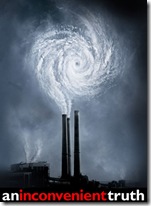 Gore’s interest in environmental safeguards reaches back to his days as a U.S. senator, but it was not until after his defeat by George W. Bush in the Presidential elections of 2000 that he became widely known as a strong advocate for sweeping reforms in governmental and corporate policy to ameliorate the clear and irreversible environmental damages caused by human industry. His 2006 documentary An Inconvenient Truth has served as a centerpiece for this campaign. The film won an Academy Award for best documentary feature, and another for best original song (by Melissa Etheridge).
Gore’s interest in environmental safeguards reaches back to his days as a U.S. senator, but it was not until after his defeat by George W. Bush in the Presidential elections of 2000 that he became widely known as a strong advocate for sweeping reforms in governmental and corporate policy to ameliorate the clear and irreversible environmental damages caused by human industry. His 2006 documentary An Inconvenient Truth has served as a centerpiece for this campaign. The film won an Academy Award for best documentary feature, and another for best original song (by Melissa Etheridge).
An Inconvenient Truth has been greeted favorably by a large majority of scientists and political progressives who are well-aware of the immense potential dangers of climate change, and has received scorn from hardliner conservatives and a majority of the governmental representatives of large-scale industry and commerce. It was recently the subject of debate in the British High Court after the UK Government announced that it would provide a copy of the DVD to every secondary school in England and Wales. A London magistrate of the Court ruled on October 10 that the film is “broadly accurate” and only occasionally deviant from consensus, and that its hypotheses are well-supported in the literature. The governments of Spain and Belgium, among others, have widely circulated the film. Gore’s Nobel citation praises him as the individual who has done the most to bring public awareness to climate change over the past several years.
U.S. President George W. Bush famously said “Doubt it” when once asked if he planned to see Gore’s film. Australia’s Prime Minister John Howard, a staunch Bush ally, quipped “I don’t take policy advice from film” when refusing to meet with Gore during an unofficial visit to Australia. Industrial protectionism and the profit-centric animus of global capitalism continue to pose major obstacles to meaningful environmental policymaking.
The UN-IPCC has continually ramped up its predictions and recommendations in accordance with a growing preponderance of scientific evidence for the seriousness of anthropogenic climate change. It periodically publishes analyses and recommendations to world governments, recommendations which frequently fall upon deaf ears.









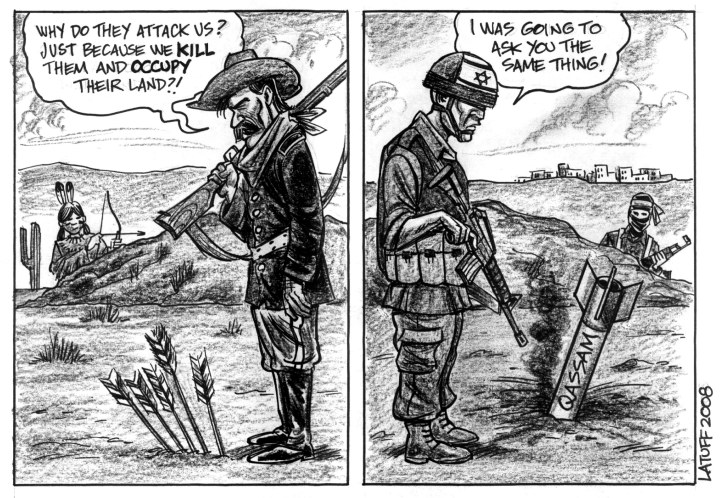
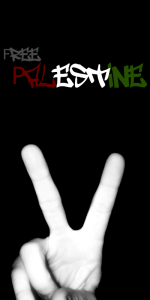


4 comments